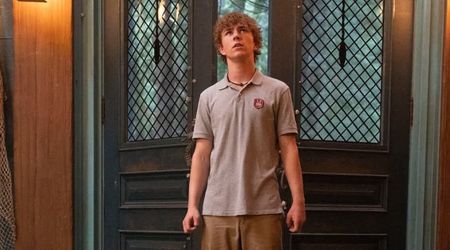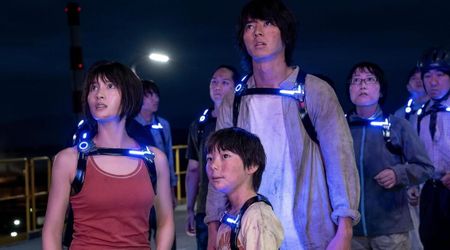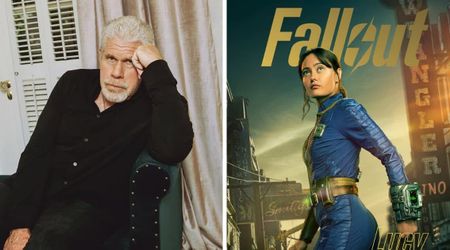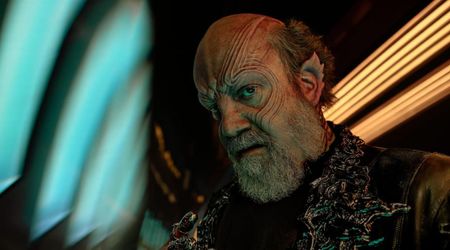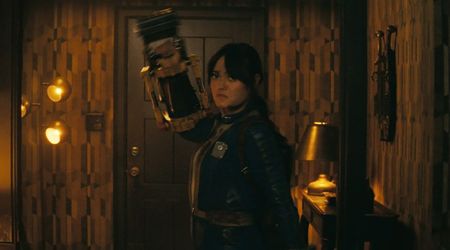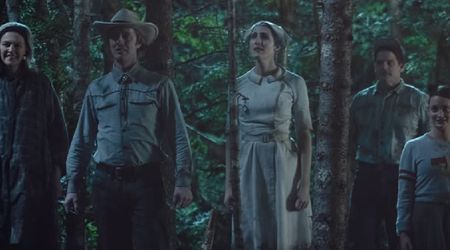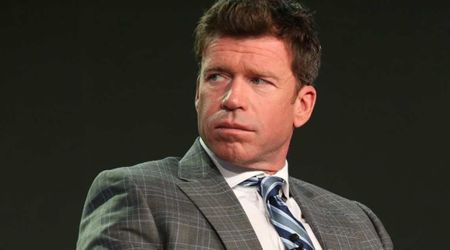Hulu's 'Looking for Alaska' review: John Green's 2005 coming-of-age story paints a discourse on loss and seeking a 'great perhaps'

Spoiler alert!
Francois Rabelais' last words were "I go to seek a great perhaps" — a phrase made more popular and known by the vast majority of young adults back in the year 2005 when John Green's cult-classic coming of age rom-com 'Looking for Alaska' was published.
Now, 14 years down the line and after several shelved attempts at churning those words onto the screen, Josh Schwartz and Stephanie Savage — the maestros who blessed pop culture with 'The OC', and 'Gossip Girl' — have sought their "great perhaps" with the Hulu limited series of the same name.
In a sea of drug addictions and unnecessary supernatural elements used to drag the plot of some of today's most popular TV shows, Hulu's 'Looking for Alaska' couldn't have been timed better.
In a sans-cell phone world dating back to 2005, we still manage to navigate through the serene static of young adult respite amidst the eerie calmness of Culver Creek, and Mile 'Pudge' Halter's never-ending struggle to impose a meaning to everything that the eponymous Alaska Young was.
That, of course, comes with the disclaimer that if one is an ardent fan of the book, things are about to change if they watch the show — but only for the better.
The most impactful aspect of the eight-part miniseries has to be the way it begins: Miles' (Charlie Plummer) calm voice breezes through the screen as he sets up the mood for the adventure that awaits him.
He talks about the great perhaps in the backdrop of rain and police lights blaring on the screen. The soundtrack adds to the teasingly mysterious calmness of everything that people who have read the book will assume is in the wake of the big plot twist that is to come.
What comes instead is a loud bang and a crash, as a vehicle collides with another and spins into its tragic ending, landing on an abandoned freeway's roadside like a long-forgotten dream that was meant to be abandoned anyway.
And in that, the series is every bit similar to the book — hitting us with a twist like a bulldozer out of the blue, just the way the grand revelation arrives in the middle of the book, without preparing you for even a fraction of it.
To love Alaska is to love pain, as Miles' journey subtly radiates in the original story and the series does a good job at exhibiting every inch of that nail-biting suspense Alaska is always smelling of.
What the series also excels at is each episodic opening. Almost like cold opens from sitcoms, the episodes open with the best bits from the books, with significance to the timeline and narrative — something that the creators are to be congratulated over.
And speaking of narrative, Miles might be the omniscient narrator like the book, but the series does its fair bit in offering each of the four main characters their own narratives and point of view.
There's Alaska's inherent despondency that even gratuitous sex, books, a super hot boyfriend, and endless Rose and cigarettes can't cure.
There's Chip 'the Colonel' Martin's (Denny Love) struggle as the only black kid in a predominantly white school filled with entitled brats. Takumi's (Jay Lee) stealth and pragmatism is rivaled with Lara's (Sofia Vassilieva) kindness and compassion.
But most of all, the Hulu series is to be thanked for the way they brought to life Chip's girlfriend, Sarah (Landry Bender) — a character with so much potential, which was sadly mostly unutilized in the books.
Kristine Forseth as Alaska might sometimes come off as a bit too strong — slightly overdone if you will. But those are only at times when the narrative tries to sensualize Alaska unnecessarily, which really makes one think if Foreseth's end goal was to bring that discomfort to the screen.
That the third wave feminist Alaska felt every time her beauty unparalleled was objectified and sexualized, when all she really was, was a girl looking for acceptance.
Alaska's biggest problem in life is a question that has haunted her ever since he was a nine-year-old child: How to get out of this labyrinth of suffering?
Luckily, even if Alaska had to take things in her hand to dig her way out of guilt and pain, Forseth does a pretty neat job as constant support — easing the character close to acceptance and forgiveness — something that comes as a breath of fresh air amidst a sea of stifled nihilism.
The other oddly satisfying aspect of the show happens to be the visuals.
As a reader, it's easy to imagine Culver Creek as a dormitory type boarding facility with multiple storeys on top of each other and boys walking around the corridors, banging doors in towels, the way they have been served in the cardboard cutout platter for American TV.
The series, however, turns the entire institution to an elaborate campsite ‚- little houses built along the banks of the lake, offering an air of somber solitude amidst a sea of horny teenagers trying to get laid.
There's class divide, but there's also students coming in together in the cafeteria for the glorious Buffriedo.
And in a year where the manic frenzy of 'Euphoria' and the redemption-of-a-rapist arc of '13 Reasons Why' managed to reign the young adult genre, 'Looking for Alaska's innocence and wistful longing from 2005 proves to be deeply comforting — like a warm hug in the middle of a blizzard — unexpected, but also worth thanking the stars for.
'Looking for Alaska' premieres on Hulu on Friday, October 18.

